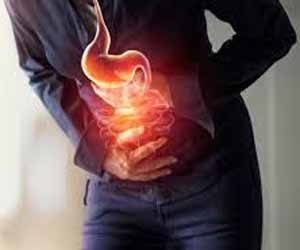- Home
- Editorial
- News
- Practice Guidelines
- Anesthesiology Guidelines
- Cancer Guidelines
- Cardiac Sciences Guidelines
- Critical Care Guidelines
- Dentistry Guidelines
- Dermatology Guidelines
- Diabetes and Endo Guidelines
- Diagnostics Guidelines
- ENT Guidelines
- Featured Practice Guidelines
- Gastroenterology Guidelines
- Geriatrics Guidelines
- Medicine Guidelines
- Nephrology Guidelines
- Neurosciences Guidelines
- Obs and Gynae Guidelines
- Ophthalmology Guidelines
- Orthopaedics Guidelines
- Paediatrics Guidelines
- Psychiatry Guidelines
- Pulmonology Guidelines
- Radiology Guidelines
- Surgery Guidelines
- Urology Guidelines
AIIMS releases guidance on Antibiotics in Gastroenteritis

All India Institute of Medical Sciences, Delhi has released AIIMS Antibiotics Policy which has been prepared by the Department of Medicine with Multidisciplinary collaboration. The guidance for Gastroenterological Infections includes Antibiotics in gastroenteritis the salient features of which have been authored in the guidance.
Gastroenteritis is defined when-
Acute (<14 days) watery diarrhoea: Abrupt onset 3 or more loose in a 24-hr period.
Acute (< 14 days) bloody diarrhoea: Abdominal pain, tenesmus and scant, frequent stools with blood and mucus.
Persistent diarrhoea: Lasts for 14 to 28 days
Chronic diarrhoea: Lasts 28 days or longer
Clostridium difficile associated diarrhoea (CDAD): Patients with prolonged or worsening diarrhoea after contact with the healthcare system or recent antibiotics). Suspect severe CDAD if TLC>15,000 cells/ml, Serum creatinine level >1.5mg/dl.
Suspect fulminant CDAD if hypotension or shock, ileus, megacolon
Tests for confirmation/diagnosis:
Hanging drop to look for darting motility (for Vibrio).
Bacterial (stool)culture for Shigella/ Salmonella/Campylobacter.
Stool microscopy for ova, cysts and oocysts of coccidian parasites Modified AFB stain for coccidian parasites.
Stool ELISA for C.difficile toxin, PCR for C.difficile.
Blood C/S if enteric fever suspected or if patients present with septicemia or are immunocompromised.
Management:
Acute (<14 days) watery diarrhoea: Abrupt onset 3 or more loose in a 24-hr period.
Aetiology: Staphylococcus aureus, Bacillus cereus, Norovirus, Rotavirus, Vibrio cholerae, Enterotoxigenic E.coli
Treatment: Antibiotics are not recommended in most cases.
Exception- cholera in outbreak settings, severe disease (fever, >6 stools/day, severe volume depletion), host factors (cardiac disease, immunocompromised, elderly)
Preferred: Tablet Azithromycin 1g stat (for cholera) with Tablet Ciprofloxacin 500 mg BD X 3 days (others)
Alternative: Tablet Doxycycline 300 mg stat (for cholera) with Tablet Azithromycin 500 mg OD X 3 days (others)
Acute (< 14 days) bloody diarrhoea: Abdominal pain, tenesmus and scant, frequent stools with blood and mucus.
Aetiology: STEC, Enteroinvasive E.coli, Salmonella, Shigella, Campylobacter, Entamoeba histolytica, Yersinia spp.
Treatment:
Preferred: Tab Ciprofloxacin 500 BD x 3 days
Alternative: Tablet Azithromycin 500 mg OD X 3 day or Injection Ceftriaxone 1-2g OD X 5 days or Tablet Cefixime 200 mg BD X 5 days
Persistent/Chronic diarrhoea:
Cryptosporidium:
Immunocompetent: Tab Nitazoxanide 500 mg BD for 3 days
Immunocompromised: Tablet Nitazoxanide (500 mg to 1g BD for 2-8 weeks)
Cyclospora:
Immunocompetent: Tab Cotrimoxazole DS 1 tab BD for 7-10 days
Immunocompromised: Tab Cotrimoxazole DS 1 BD for 14 days followed by secondary prophylaxis (DS 1 tab thrice weekly)
Cystoisospora belli:
Immunocompetent: Tab Cotrimoxazole DS 1 tab BD for 7-10 days
Immunocompromised: Tab Cotrimoxazole DS 1-2 tablet BD for 14 days followed by secondary prophylaxis (DS 1 tab thrice weekly)
Giardia lamblia:
Tab Tinidazole 2gm single dose Or Tab Nitazoxanide 500 mg BD for 3 days Or Tablet Metronidazole 200 mg TDS X5-7 days
Microsporidia:
Tab Albendazole 400 mg BD for 21 days
CDAD:
Initial episode: Cap/Tab Vancomycin 125-250 mg QID for 10 days
Note: If vancomycin is not available, metronidazole 400 mg orally 3 times per day for 10 days may be used.
Initial episode (Fulminant): Cap/Tab Vancomycin 500 mg QID by mouth or by nasogastric tube and IV Metronidazole (500 mg TDS) if oral therapy can’t be given
First recurrence: A prolonged tapered and pulsed vancomycin regimen is used (125 mg 4 times per day for 10–14 days, 2 times per day for a week, once per day for a week, and then every 2 or 3 days for 2–8 weeks
Second or subsequent recurrence: Tab vancomycin in a tapered and pulsed regimen, OR Tab vancomycin, 125 mg QID for 10 days followed by rifaximin 400 mg TDS for 20 days, OR Faecal microbiota transplantation
Note: Studies on the role probiotics have been inconclusive.

Disclaimer: This site is primarily intended for healthcare professionals. Any content/information on this website does not replace the advice of medical and/or health professionals and should not be construed as medical/diagnostic advice/endorsement or prescription. Use of this site is subject to our terms of use, privacy policy, advertisement policy. © 2020 Minerva Medical Treatment Pvt Ltd